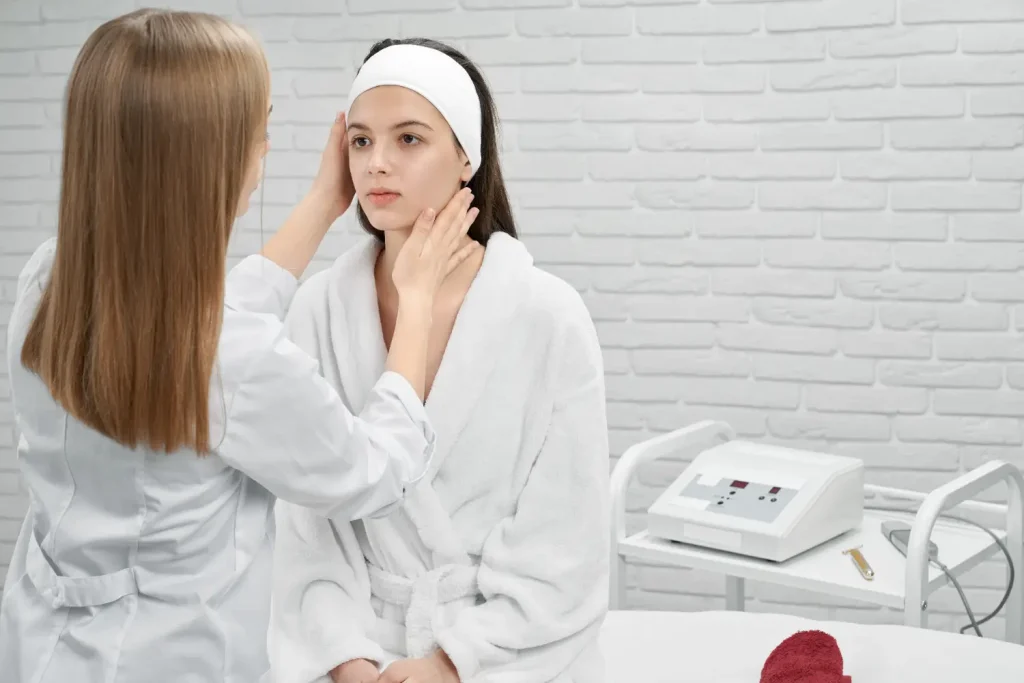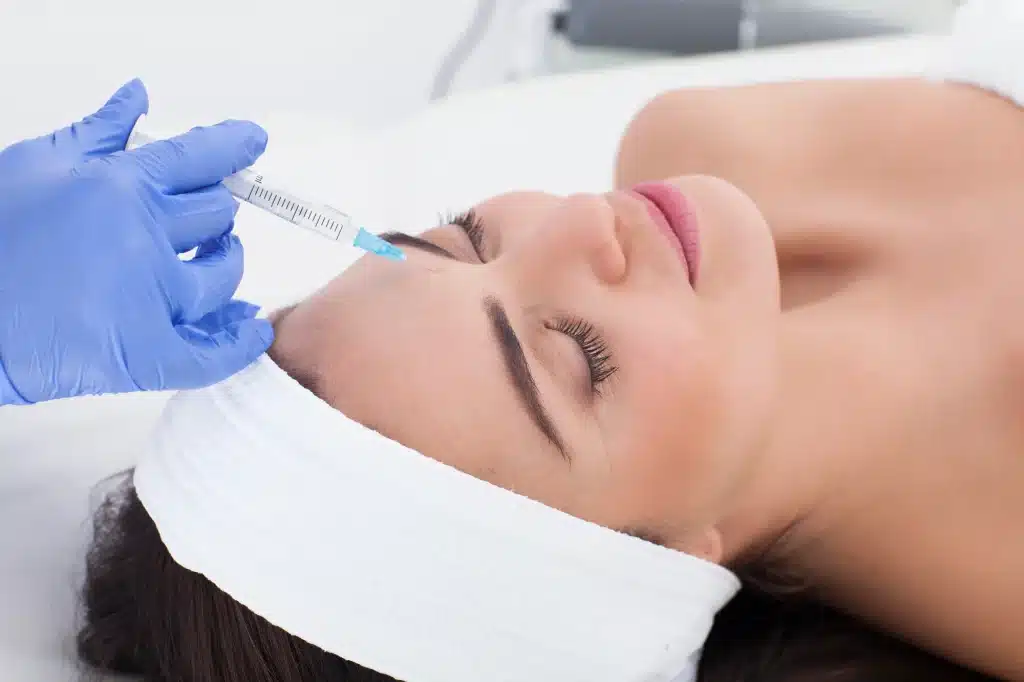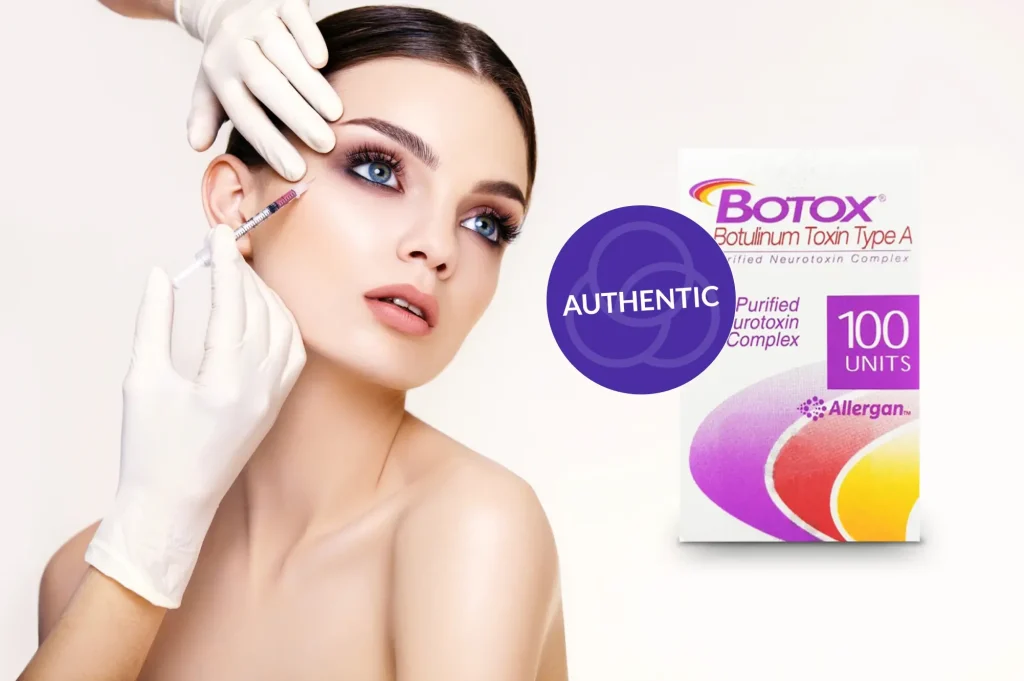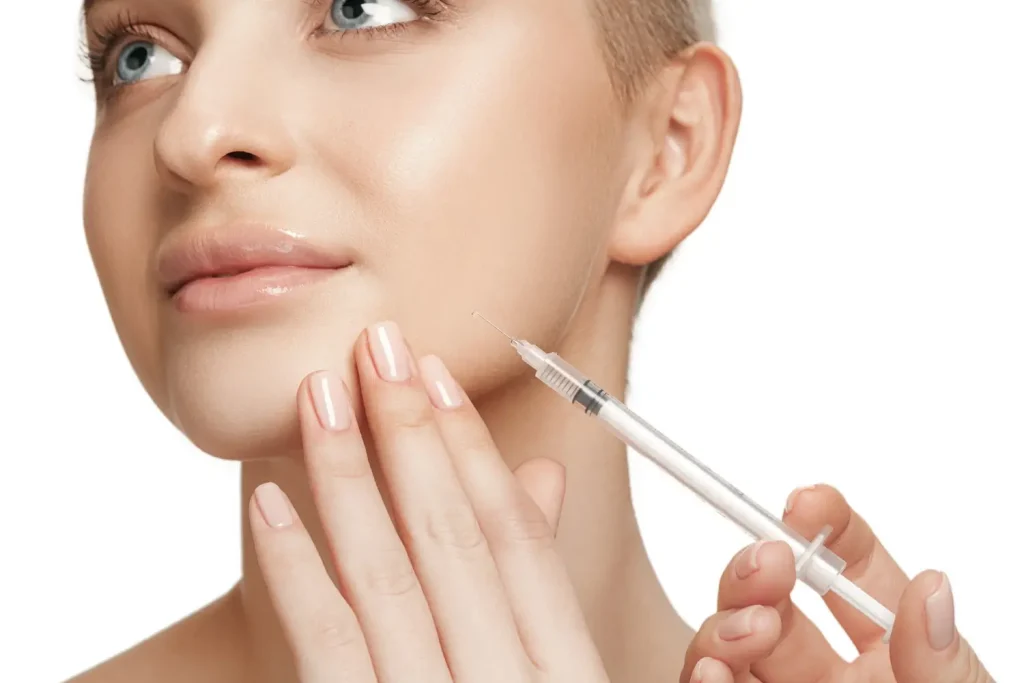Scars result from the skin’s natural repairing process. Dermal fillers are an effective method to treat, and possibly get rid of, specific kinds scars. They are especially effective for treating rolling scars and shallow boxcar scars.
Dermal fillers improve scar appearance by lifting depressed scars. There are many kinds of dermal fillers available, so patients should consult their dermatologist or health-care practitioner to learn which dermal filler is best for them. In general, hyaluronic acid-based fillers, such as Belotero, Juvederm, or Restylane, are most popular for reducing the appearance of scars.
How much does it cost?
Dermal fillers for treating acne scars are priced based on a number of factors, including the area treated, the skill of the specialist, the brand of filler, and the severity of the scarring. On average, the cost can start at $400+. Patients may need to receive repeat treatments to maintain the results, as soft tissue fillers are usually temporary.
What happens in the treatment?
As the first step in the process, your designated specialist will go through the process of a complete facial assessment and examining your medical history. Based on the findings from this, they will discuss and provide their opinion for your treatment options. Once you have decided and are ready for the treatment procedure to begin, beforehand, a local anesthetic may be applied. Following that, the dermal filler is injected into the regions identified as needing correction. The amount of time a treatment session requires from start to finish, depends on how many scars are to be treated.
Dermal filler results
Patients can resume their ordinary activities immediately after receiving dermal filler treatment, and marks from the injections typically fade within a few days. Dermal filler injections can cause mild swelling in the treated area that can take up to 2 weeks to go away. The results of dermal filler treatment can usually be seen immediately and results last anywhere from a few months to several years, depending on the patient and the type of dermal filler used.
Are there any precautions with treatment?
Dermal fillers should not be injected into inflamed or infected skin. It is important that you seek treatment with a licensed injector in order to avoid unwanted risks. Each filler will have its own precautions that the doctor will go over with you prior to treatment.
Are dermal fillers effective?
Dermal fillers have been used for decades to correct a wide variety of skin imperfections and concerns. They have been shown to effectively fill skin depressions, making them a great treatment option for those who have scars.
Are there any side effects?
Dermal fillers are safe as long as the procedure is done by a trained medical professional. Dermal fillers come with little risk of complications, and adverse reactions are uncommon. Potential side effects include swelling, redness, and irritation at the injection site. The dermal filler may also be visible under the skin as small bumps, but these bumps disappear after a couple of days, leaving the skin smooth. It is important to choose a skilled professional to avoid adverse reactions.
Types of dermal fillers
Dermal fillers can be classified as temporary, semi-permanent, or permanent. Temporary dermal fillers are made from hyaluronic acid. The results of temporary dermal fillers typically last between 3 and 18 months. Semi-permanent dermal fillers are made from calcium hydroxylapatite and poly-L-lactic acid. The results of these fillers last up to 24 months on average.
Permanent dermal fillers are made from silicon, polyacrylamide, polymethacrylates, and hydroxyethyl methacrylate. Permanent dermal fillers remain in the body for several years.
Temporary and semi-permanent dermal fillers are biodegradable, while permanent fillers are not. The suitability of a specific dermal filler depends mainly upon the characteristics of the dermal filler, the qualifications of the medical specialist, and patient attributes.
How old do I have to be to receive treatment?
Patients must be at least 18 years old to get cosmetic injectable treatments.
Are there other options for treatment?
Other treatments for acne scars include chemical peels, micro-needling, and laser resurfacing. The treatments will depend on the type of scars you have.
If you are self-conscious about facial scars, discuss treatment options with your health-care provider. A local licensed injector will be able to show you before and after pictures of other individuals who have received treatment with soft tissue fillers. Dermal fillers have long been a common treatment for correcting scars and wrinkles. Cosmetic injectables can effectively smooth out your complexion for a revitalized appearance.





















